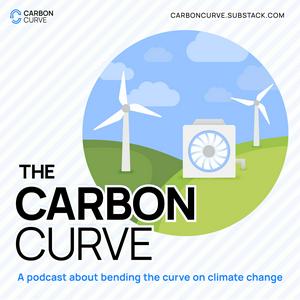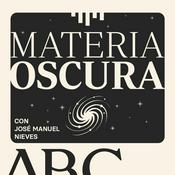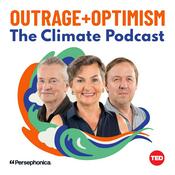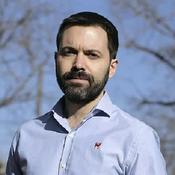Episodios disponibles
5 de 59
- How will this newly launched DAC facility hold up to a Canadian winter?Episode 59 is with Rory Brown, Co-Founder & CEO at AirhiveIn this episode, Na’im speaks with Rory about his journey into carbon removal technology with a focus on direct air capture (DAC). Other major themes include the importance of financing, the policy landscape for carbon removal in different regions, and the need for transparency about DAC costs.In this episode, Na’im and Rory discuss:* Rory’s transition to climate and DAC* The founding and growth of Airhive, including their technology and team* Key features and operational efficiency of Airhive’s DAC technology* The operational progress of their 1,000 tonne per year commercial demonstrator in Alberta, Canada* The main barriers to scaling DAC and how Airhive addresses these challenges* The complexity and transparency issues around the cost of DAC* Future projections and cost reduction goals for DAC technology* The benefits and opportunities of deploying DAC technology in Alberta, Canada* The role of policy in shaping the global development of carbon removal technologies* Airhive’s plans for future projects, including CO2 supply for industrial processes and further R&D advancementsRelevant Links:* Airhive - Website* List of Airhive’s current and upcoming projects - Webpage* The launch of Airhive’s operation at Deep Sky Alpha - Article* More details and registration for Carbon Removal Day 2026 (in-person only)About Rory Brown and Airhive:Rory is the CEO of Airhive, which he co-founded in 2022 after nearly a decade and a half in international affairs. Airhive is a London, England-based DAC developer. Founded in 2022 by Rory and CTO Dr. Jasper Wong, Airhive are a team of 15 engineers and operators with active pilot and commercial projects in the UK, Canada, EU and Asia-Pacific. An XPRIZE Carbon Removal Finalist, they recently announced they have begun capturing CO2 from their 1,000 tonne per year commercial demonstrator at the Deep Sky Alpha facility in Alberta, Canada.This episode was made possible thanks to the generous support of the Consecon Foundation.This episode was created and published by Na’im Merchant. Episode production and content support provided by Tank Chen.Na’im Merchant is the co-founder and Executive Director of Carbon Removal Canada, a policy initiative focused on scaling carbon removal in Canada. He is on the advisory board of the Carbon Removal Standards Initiative and Terraset, and a former policy fellow with Elemental Impact. He previously ran carbon removal consulting practice Carbon Curve, and publishes The Carbon Curve newsletter and podcast. Every two weeks, Na’im will release a short interview with individuals advancing the policies, technologies, and collective action needed to scale up carbon removal around the world.Tank Chen is the Head of Content and Community at CDR.fyi, a public benefit corporation dedicated to accelerating carbon removal through transparency. He is also the co-founder of CDRjobs, a career platform for the carbon removal industry. Based in Taiwan, Tank is a carbon removal advocate focused on educating policymakers, corporate leaders, and the public on the importance of carbon removal, using data-driven insights to support communication and policy advocacy.If you enjoyed this episode, please subscribe to this podcast on your favorite podcast app or subscribe via The Carbon Curve newsletter here. If you’d like to get in touch with Na’im, you can reach out via LinkedIn. This is a public episode. If you would like to discuss this with other subscribers or get access to bonus episodes, visit carboncurve.substack.com--------30:23
- The carbon market's original sinEpisode 58 is with Marc Roston (Stanford’s Precourt Institute for Energy) and Peter Minor (Absolute Climate)This episode features Marc Roston, senior research scholar at Stanford’s Precourt Institute for Energy, and Peter Minor, co-founder of Absolute Climate. They explore fundamental flaws undermining voluntary carbon markets, focusing on how carbon credits are accounted and valued. Mark explains challenges like the “original sin” of credit retirement, custody issues, and fungibility differences among carbon removal types. Together, they discuss a new concept of carbon delivery companies as long-term counterparties to enhance accountability and trust. The dialogue highlights the urgent need to align carbon market practices with the realities of durable climate impact and robust financial frameworks.In this episode, Na’im, Peter, and Marc discuss:* The problems with current carbon accounting and credit retirement;* The distinction between emissions reductions and carbon removals;* The concept of carbon delivery companies and long-term liabilities, and the need for fungibility in carbon credit markets;* Solutions for aligning short-term and long-term carbon liabilities;* Emission liability management as a core concept to improve carbon markets* The necessity of differentiating between avoidance and removal credits in trading markets* Experimentation in policy and trading to create a reliable market infrastructure for carbon removalRelevant links:* The Market That Won’t Trade: Fixing Structural Failures in the Spot Market for Carbon Removals - Paper* What’s next after carbon accounting? Emissions liability management - PaperAccounting for Climate Change - Article* Sustainable Finance Initiative - Website* Absolute Climate - WebsiteAbout Marc:Marc Roston is a Senior Research Scholar at the Precourt Institute for Energy in the Stanford Doerr School of Sustainability where he leads research efforts in carbon accounting and carbon markets, financial institution transitions and climate-related insurance markets. He’s also a Senior Fellow at the E-ledgers Institute, where he’s been helping to define the concept of E-liabilities. Prior to joining Stanford in 2020, Roston spent 25 years in the asset management industry where he held senior investment positions in quantitative finance, private equity, and advisory services. He earned a PhD in Economics from the University of Chicago and a B.S. in Economics at Carnegie Mellon University.About Peter:Peter Minor is a co-founder of Absolute Climate, which is building independent standards that apply universal assessment criteria to all CDR pathways. A veteran of the carbon removal industry, he previously served as the Director of Science & Innovation at Carbon180. While there, he contributed to the development of key programs like the DOE Regional DAC Hubs, and pioneered core principles required for high-accountability MRV. A UC Berkeley Mechanical Engineering PhD by training, he applies his expertise in sensors, numerical modeling, and carbon removal science towards building the MRV solutions needed to unlock gigaton scale.This episode was made possible thanks to the generous support of the Consecon Foundation.This episode was created and published by Na’im Merchant. Episode production and content support provided by Tank Chen.Na’im Merchant is the co-founder and Executive Director of Carbon Removal Canada, a policy initiative focused on scaling carbon removal in Canada. He is on the advisory board of the Carbon Removal Standards Initiative and Terraset, and a former policy fellow with Elemental Impact. He previously ran carbon removal consulting practice Carbon Curve, and publishes The Carbon Curve newsletter and podcast. Every two weeks, Na’im will release a short interview with individuals advancing the policies, technologies, and collective action needed to scale up carbon removal around the world.Tank Chen is the Head of Content and Community at CDR.fyi, a public benefit corporation dedicated to accelerating carbon removal through transparency. He is also the co-founder of CDRjobs, a career platform for the carbon removal industry. Based in Taiwan, Tank is a carbon removal advocate focused on educating policymakers, corporate leaders, and the public on the importance of carbon removal, using data-driven insights to support communication and policy advocacy.If you enjoyed this episode, please subscribe to this podcast on your favorite podcast app or subscribe via The Carbon Curve newsletter here. If you’d like to get in touch with Na’im, you can reach out via LinkedIn. This is a public episode. If you would like to discuss this with other subscribers or get access to bonus episodes, visit carboncurve.substack.com--------1:10:28
- Philanthropy's role in shaping climate financeEpisode 57 is with Adam Fraser, CEO of Terraset.In this episode, Na’im speaks with Adam Fraser about Terraset, an innovative nonprofit dedicated to removing greenhouse gases from the atmosphere. They discuss Adam's background in sports journalism and his transition to climate action. They highlight the unique approaches Terraset uses to fund carbon removal, including a recently launched revolving fund which pre-purchases carbon removal and reinvests proceeds to create a sustainable funding model. They also discuss the importance of philanthropic capital to catalyze the nascent carbon removal industry and how Terraset collaborates with various stakeholders to support and scale early-stage carbon removal companies. The episode delves into the diverse motivations and profiles of Terraset’s donors, the gaps and challenges in funding permanent carbon removal and potential solutions, and the future plans for Terraset and how interested parties can get involved.In this episode, Na’im and Adam discuss:* Adam’s journey into carbon removal;* Terraset’s mission and approach;* Challenges and opportunities in funding carbon removal;* Innovative funding models for carbon removal;* Terraset's Revolving Fund.Relevant Links:* What carbon removal suppliers need most in 2025 - Terraset Survey Finding* Launching the Terraset Revolving Fund - Terraset Substack* New carbon removals fund aims to spur project development - TrellisAbout Adam:In 2023 he was named as the first CEO of Terraset, a nonprofit focused on removing greenhouse gases from the atmosphere. Prior to Terraset, Adam served as Chief Executive of the Laureus Sport for Good Foundation, a global nonprofit founded under the Patronage of Nelson Mandela after the role he saw sport play in rebuilding post-apartheid South Africa. He now sits on the organization’s 501(c)(3) Board, as well as the Board of YPO Manhattan. He has worked as a journalist and writer, communications lead, and nonprofit brand and business development specialist, and has built successful funding partnerships on every continent.Background on Terraset: Terraset is a nonprofit that uses philanthropic capital to catalyze the nascent carbon removal industry. They pool tax-deductible donations from individuals, foundations, family offices, and donor-advised funds, and make strategic purchases of permanent, high-quality carbon removal from innovative projects and companies. This episode was created and published by Na’im Merchant. Episode production and content support provided by Tank Chen.Na’im Merchant is the co-founder and Executive Director of Carbon Removal Canada, a policy initiative focused on scaling carbon removal in Canada. He is on the advisory board of the Carbon Removal Standards Initiative and Terraset, and a former policy fellow with Elemental Impact. He previously ran carbon removal consulting practice Carbon Curve, and publishes The Carbon Curve newsletter and podcast. Every two weeks, Na’im will release a short interview with individuals advancing the policies, technologies, and collective action needed to scale up carbon removal around the world.Tank Chen is the Head of Content and Community at CDR.fyi, a public benefit corporation dedicated to accelerating carbon removal through transparency. He is also the co-founder of CDRjobs, a career platform for the carbon removal industry. Based in Taiwan, Tank is a carbon removal advocate focused on educating policymakers, corporate leaders, and the public on the importance of carbon removal, using data-driven insights to support communication and policy advocacy.If you enjoyed this episode, please subscribe to this podcast on your favorite podcast app or subscribe via The Carbon Curve newsletter here. If you’d like to get in touch with Na’im, you can reach out via LinkedIn. This is a public episode. If you would like to discuss this with other subscribers or get access to bonus episodes, visit carboncurve.substack.com--------39:12
- CO280 is turning pulp and paper mills into carbon removal factoriesEpisode 56 is with Jonathan Rhone and Natalie Khtikian, co-founders of CO280.In this episode, Na’im speaks with Jonathan and Natalie about their groundbreaking work in large-scale carbon dioxide removal (CDR) projects, specifically in partnership with pulp and paper companies. They discuss their innovative approach to carbon removal by partnering with pulp and paper companies. They highlight the importance of leveraging existing industrial frameworks to scale effectively. The episode delves into their successful partnerships with major companies like JP Morgan and Microsoft, and the critical role of government policies in facilitating large-scale carbon removal projects.In this episode, Na’im, Jonathan, and Natalie discuss: * Their journey into carbon removal and founding CO280;* The challenges and opportunities of integrating carbon removal technology with the pulp and paper industry* CO280's business model and project financing strategies* Recent high-profile agreements with companies like Frontier, Microsoft, and Frontier;* Technical and logistical aspects of CDR project development;* The importance of regulatory and policy certainties for supporting the CDR market; and* The outlook and future plans for CO280.Relevant Links:* CO280 - Website* CO280 and Frontier’s offtake agreement - Article* Why Microsoft is buying carbon credits from a pulp and paper mill - Article by Trellis* CO280 and JPMorgan’s offtake agreement - NewsAbout JonJonathan Rhone is a serial cleantech entrepreneur with extensive experience commercializing hard-tech, developing large-scale projects, and partnering with industrials to solve tough energy and environmental problems. As co-founder and CEO of Axine Water, he led commercialization of a disruptive technology and hardware-as-a-service model for the pharmaceutical and other industrial markets.Jonathan is also co-founder and director of Evok Innovations, where he helped launch one of Canada’s largest and most successful cleantech venture funds. As founder and CEO of Nexterra Systems, he created a global supplier of bioenergy heat and power systems for industrial and institutional customers. Prior to Nexterra, he held leadership positions with a NASDAQ-listed cleantech company, and the Delphi Group. He began his career in oil and gas with Amoco Canada (now BP).About NatalieNatalie Khtikian is a commercialization and sales leader with experience spanning software, advertising, and hard-tech. She is cofounder and chief commercial officer atPrior to joining CO280, Natalie was Climeworks' first employee in North America, before pivoting to climate tech, Natalie was part of two teams that were acquired by Google, Wildfire Interactive and Waze. There, she worked with Fortune 50 clients and opened new markets and verticals. Natalie also was VP of Sales for Yondr, a hardware team focused on removing cellphone distraction from shows, events, and spaces.About CO280CO280 is a developer of large-scale carbon dioxide removal (CDR) projects. In partnership with pulp and paper companies, CO280 develops, finances, owns, and operates carbon removal projects that deliver a new standard of permanent, verifiable, and affordable CDR credits to customers in the carbon market. They have more than 10m tonnes per year of CDR under development in the US and Canada. They have had recent public CDR customer announcements with JPMorgan, Microsoft, and Frontier.This episode was made possible thanks to the generous support of the Consecon Foundation.This episode was created and published by Na’im Merchant. Episode production and content support provided by Tank Chen.Na’im Merchant is the co-founder and Executive Director of Carbon Removal Canada, a policy initiative focused on scaling carbon removal in Canada. He is on the advisory board of the Carbon Removal Standards Initiative and Terraset, and a former policy fellow with Elemental Impact. He previously ran carbon removal consulting practice Carbon Curve, and publishes The Carbon Curve newsletter and podcast. Every two weeks, Na’im will release a short interview with individuals advancing the policies, technologies, and collective action needed to scale up carbon removal around the world.Tank Chen is the Head of Content and Community at CDR.fyi, a public benefit corporation dedicated to accelerating carbon removal through transparency. He is also the co-founder of CDRjobs, a career platform for the carbon removal industry. Based in Taiwan, Tank is a carbon removal advocate focused on educating policymakers, corporate leaders, and the public on the importance of carbon removal, using data-driven insights to support communication and policy advocacy.If you enjoyed this episode, please subscribe to this podcast on your favorite podcast app or subscribe via The Carbon Curve newsletter here. If you’d like to get in touch with Na’im, you can reach out via LinkedIn. This is a public episode. If you would like to discuss this with other subscribers or get access to bonus episodes, visit carboncurve.substack.com--------38:19
- Has Avnos flipped the script on DAC?Episode 55 is with Will Kain, Founder & CEO of AvnosIn this episode, Na’im speaks with Will Kain about the advancement and commercialization of hybrid direct air capture (HDAC) technology at Avnos. The conversation also covers Will’s journey into the climate tech space, the unique hybrid DAC approach and the resource-efficient and cost-effective benefits of HDAC, as well as the challenges of scaling DAC technologies and the role of supportive policy regimes.In this episode, Na’im and Will discuss: * Will’s journey in carbon removal* Avnos’ approach to Direct Air Capture Technology* Avnos’ latest project, Brighton, and future plans* The importance of partnership and policy support* Challenges and opportunities in scaling DACRelevant Links:Avnos - WebsiteAvnos HDAC Technology - Explainer - YoutubeAvnos’ Demonstration Unit in Bridgewater, NJ - News About Will Kain: Will is the Founder & CEO of Avnos, bringing nearly a decade of leadership experience across early-stage cleantech companies. He previously launched Rusheen Capital Management and served as VP of Corporate Development at NanoH2O, a global desalination tech company. Will began his career at UBS Investment Bank and holds a BA in Economics and Government from the University of Virginia.About Avnos: Avnos is commercializing a unique approach to direct air capture – Hybrid Direct Air Capture (HDAC™) – which removes CO2 from the air, while producing water and requiring no external heat. The result is a resource-efficient, geographically flexible, and cost-effective approach to DAC. Avnos’ approach has been awarded multi-million-dollar projects from the U.S. Department of Energy and has backing from the U.S. Office of Naval Research to pilot DAC-sourced CO2 for e-fuels production.This episode was made possible thanks to the generous support of the Consecon Foundation.This episode was created and published by Na’im Merchant. Episode production and content support provided by Tank Chen.Na’im Merchant is the co-founder and Executive Director of Carbon Removal Canada, a policy initiative focused on scaling carbon removal in Canada. He is on the advisory board of the Carbon Removal Standards Initiative and Terraset, and a former policy fellow with Elemental Impact. He previously ran carbon removal consulting practice Carbon Curve, and publishes The Carbon Curve newsletter and podcast. Every two weeks, Na’im will release a short interview with individuals advancing the policies, technologies, and collective action needed to scale up carbon removal around the world.Tank Chen is the Head of Content and Community at CDR.fyi, a public benefit corporation dedicated to accelerating carbon removal through transparency. He is also the co-founder of CDRjobs, a career platform for the carbon removal industry. Based in Taiwan, Tank is a carbon removal advocate focused on educating policymakers, corporate leaders, and the public on the importance of carbon removal, using data-driven insights to support communication and policy advocacy.If you enjoyed this episode, please subscribe to this podcast on your favorite podcast app or subscribe via The Carbon Curve newsletter here. If you’d like to get in touch with Na’im, you can reach out via LinkedIn. This is a public episode. If you would like to discuss this with other subscribers or get access to bonus episodes, visit carboncurve.substack.com--------39:25
Más podcasts de Ciencias
Podcasts a la moda de Ciencias
Acerca de The Carbon Curve
Few people realize this, but fending off the worst effects of climate change is going to require the removal of billions of tons of CO2 from the air every year. To even comprehend that scale - imagine running today's oil and gas sector... in reverse. Every two weeks, carbon removal specialist Na'im Merchant speaks to entrepreneurs, innovators, activists, and policy experts advancing bold ideas to scale up carbon dioxide removal to bend the curve on climate change. If you're concerned about climate change and want to learn about an entirely new pathway to doing something about it, be sure to subscribe so you don't miss an episode! carboncurve.substack.com
Sitio web del podcastEscucha The Carbon Curve, Hidden Brain y muchos más podcasts de todo el mundo con la aplicación de radio.net

Descarga la app gratuita: radio.net
- Añadir radios y podcasts a favoritos
- Transmisión por Wi-Fi y Bluetooth
- Carplay & Android Auto compatible
- Muchas otras funciones de la app
Descarga la app gratuita: radio.net
- Añadir radios y podcasts a favoritos
- Transmisión por Wi-Fi y Bluetooth
- Carplay & Android Auto compatible
- Muchas otras funciones de la app


The Carbon Curve
Escanea el código,
Descarga la app,
Escucha.
Descarga la app,
Escucha.






























